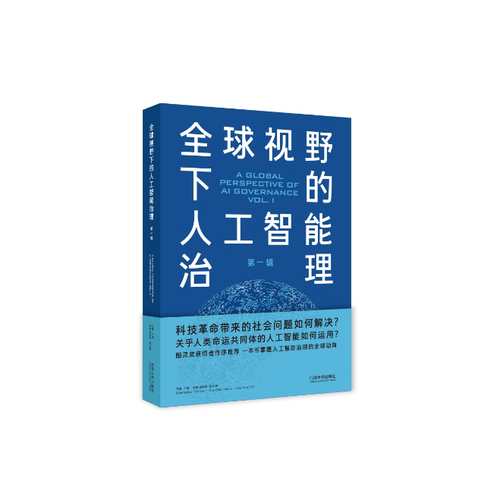
AI is increasingly affecting every aspect of the economy and society, and AI governance needs to take on the important responsibility of ensuring that AI develops in a beneficial and safe direction. Based on the editorial approach of "science of science," this book invites more than 60 representative experts from international organizations, various countries, and regions to find the most important new issues, new views, and new measures in the field of artificial intelligence governance in the way of "thought crowdsourcing." Through continuous summary and sharing of existing research results and new progress, it aims to witness the formation of a global artificial intelligence governance system.
This book first presents the development trends and thinking of artificial intelligence governance in the scientific and technological circles and the humanities and social sciences circles. Scientists present their understanding of AI governance and conduct technical exploration to solve the problem of artificial intelligence governance. Experts from the fields of philosophy, law, ethics, sociology, and more present the most pressing social issues brought about by artificial intelligence, as well as the latest analytical frameworks and advances.
Second, the book reflects the governance trends and progress of the AI industry. AI governance exists in specific scenarios, and industry organizations are both subjects of governance and active explorers of problem solutions. In this part, the book invites representatives from the artificial intelligence industry to introduce and discuss the problems emerging in the application of artificial intelligence in the industry and the corresponding solutions.
Finally, the book introduces global policy research and the advancement of artificial intelligence. By showing and observing the AI governance policies of some countries in North America, Europe, Asia, South America, and other regions, it is found that forming a global consensus on AI governance remains a significant challenge.
The book presents China's exploration and practice in the field of artificial intelligence from a multi-dimensional perspective, and the book also believes that the global artificial intelligence governance system is taking shape and needs more discussion and dialogue. It is hoped that the publication of this book will serve as a starting point for further dialogue and contribute to important new advances in AI governance.




 E-mail Alerts
E-mail Alerts
 沪公网安备 31010402001155号
沪公网安备 31010402001155号